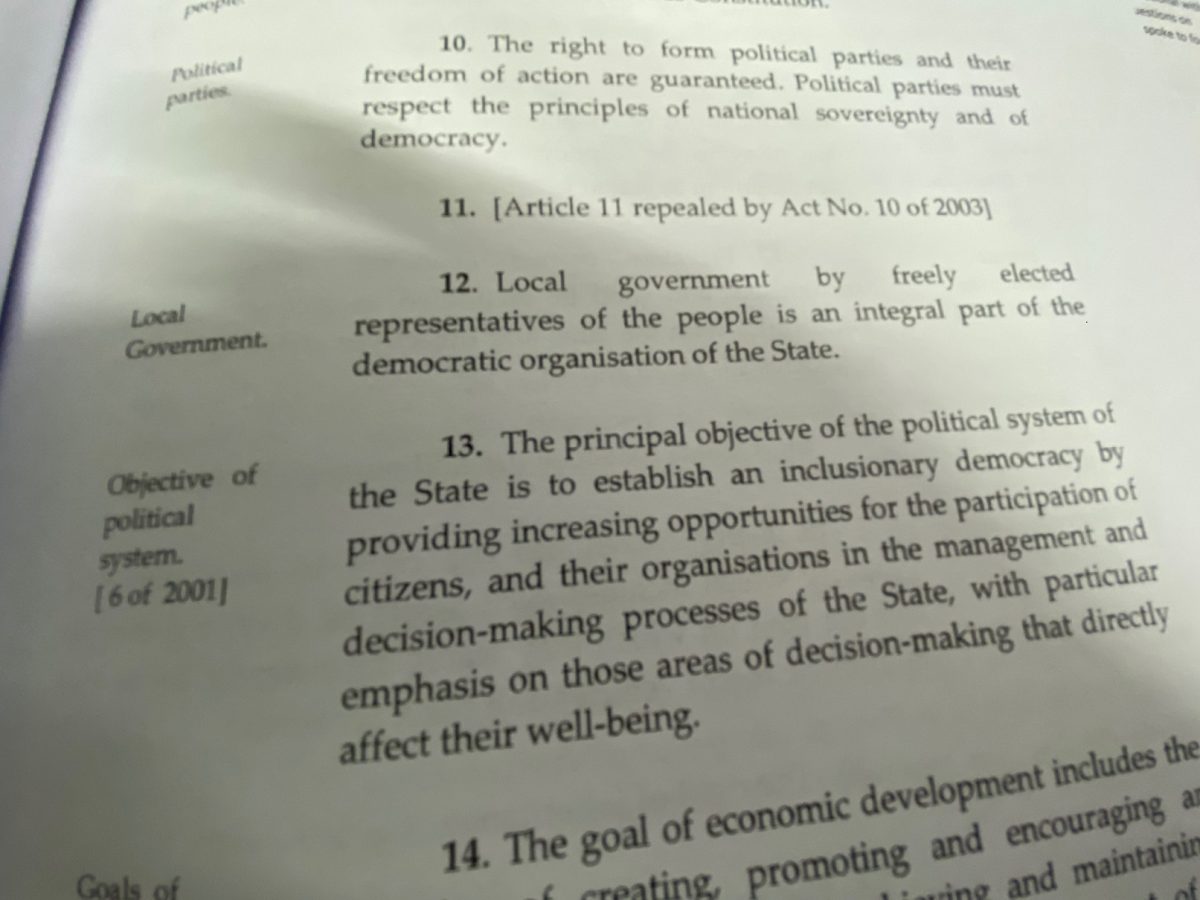Article 13 has denied a claim by Attorney General Anil Nandlall that it is calling for a restructuring of the political system.
The group, which takes its name from the article of the constitution dealing with inclusionary democracy, also rapped Nandlall for what it said was misrepresentation of the group’s position.
In recent weeks, senior members of the PPP/C government and its surrogates have launched attacks on civil society groups like Article 13, formed this year, the Electoral Reform Group and the Guyana Human Rights Association in an apparent bid to limit the impact of their public positions.
A portion of a statement issued by Article 13 follows:
Article 13 has noted with dismay and disappointment statements made by Mr. Anil Nandlall, SC, Attorney General in a recent television programme concerning our Group. Disappointment because we recognise and salute Mr. Nandlall’s leading role in the period following the No Confidence Motion to the declaration of the results of the March 2 elections on August 5. While the fight was carried out by so many, he did the spade and bucket work, displaying energy, intellect, passion and dedication. We therefore view with dismay his willingness to tarnish his reputation by choosing to disparage, take out of context and misrepresent his fellow Guyanese who dare to make critical comments on action or inaction by the Government.
The very raison d’etre of Article 13 is the assertion of the people’s constitutional right to promote and enjoy good and better governance in Guyana. Article 13 sees elections not as a government – opposition thing but as one of the pillars of our democracy. It is considered elementary that one must first seek to diagnose or identify the problem before attempting to fix it. Our statement of November 20 sought to identify areas of priority and to place the proposed amendments in context. This is an entirely logical and reasonable approach to legislation.
Mr. Nandlall’s claim on his programme that Article 13 is calling for a restructuring of the political system is not borne out by the facts while his suggestion that the political system that we have in Guyana is one that is provided for in the Constitution is only partly true. A new section 11 to the Representation of the People Act resulting from the reforms of 2000 and 2001 introduced constituency seats, the efficacy of which has been neutered by the political parties.
Article 13 agrees with Mr. Nandlall that as a political party or as a government, the PPP/C does not have the votes to amend those provisions of the Constitution which require more than a simple majority. That however does not prevent the PPP/C from putting and promoting its ideas into the public domain. It would be helpful to the process and advance the debate if the ruling party would share its ideas on the second round of electoral reforms and his Party’s proposals for amendments to the Constitution.

